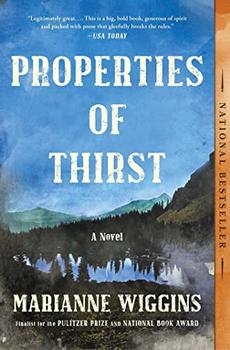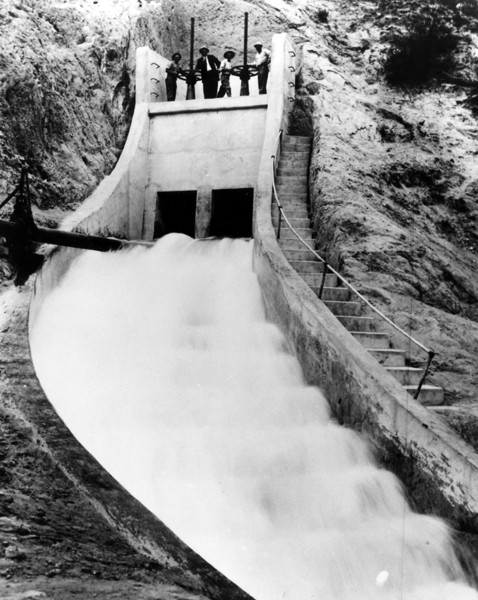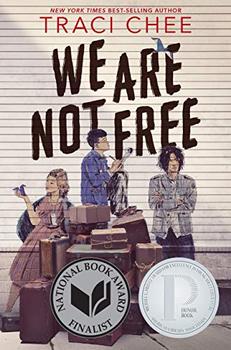Summary | Excerpt | Reviews | Beyond the book | Read-Alikes | Genres & Themes | Author Bio

Fifteen years after the publication of Evidence of Things Unseen, National Book Award and Pulitzer Prize finalist Marianne Wiggins returns with a novel destined to be an American classic: a sweeping masterwork set during World War II about the meaning of family and the limitations of the American Dream.
Rockwell "Rocky" Rhodes has spent years fiercely protecting his California ranch from the LA Water Corporation. It is here where he and his beloved wife Lou raised their twins, Sunny and Stryker, and it is here where Rocky has mourned Lou in the years since her death.
As Sunny and Stryker reach the cusp of adulthood, the country teeters on the brink of war. Stryker decides to join the fight, deploying to Pearl Harbor not long before the bombs strike. Soon, Rocky and his family find themselves facing yet another incomprehensible tragedy.
Rocky is determined to protect his remaining family and the land where they've loved and lost so much. But when the government decides to build a Japanese-American internment camp next to the ranch, Rocky realizes that the land faces even bigger threats than the LA watermen he's battled for years. Complicating matters is the fact that the idealistic Department of the Interior man assigned to build the camp, who only begins to understand the horror of his task after it may be too late, becomes infatuated with Sunny and entangled with the Rhodes family.
Properties of Thirst is a novel that is both universal and intimate. It is the story of a changing American landscape and an examination of one of the darkest periods in this country's past, told through the stories of the individual loves and losses that weave together to form the fabric of our shared history. Ultimately, it is an unflinching distillation of our nation's essence—and a celebration of the bonds of love and family that persist against all odds.
In 2016, when she was 80% finished with this novel, Wiggins suffered a stroke that left her unable to read or write. Her daughter, Lara Porzak, worked tirelessly with her to help complete the work. Her hand is undetectable — the prose is wonderful, start to finish — but the ending leaves a number of plotlines hanging. Properties of Thirst is a worthy addition to Wiggins' canon, perhaps her best work to date. It's a big, beautiful epic that deserves wide readership, and I highly recommend it to audiences looking for first-rate literary fiction...continued
Full Review
(805 words)
This review is available to non-members for a limited time. For full access,
become a member today.
(Reviewed by Kim Kovacs).
 In Marianne Wiggins' novel, Properties of Thirst, one of the main characters is in an ongoing battle with the Los Angeles Department of Water over their aqueduct installation in California's Owens Valley.
In Marianne Wiggins' novel, Properties of Thirst, one of the main characters is in an ongoing battle with the Los Angeles Department of Water over their aqueduct installation in California's Owens Valley.
Los Angeles was officially founded on September 4, 1781 as part of Spain's colonization of California. As the town grew so did its water needs, and over time a series of canals and reservoirs were built to take advantage of the Los Angeles River and its tributaries. By the end of the 19th century, however, it was becoming clear that the existing water supply would be insufficient to support the burgeoning population.
The water system had been managed by a private corporation, the Los Angeles City Water Company, with William ...
This "beyond the book" feature is available to non-members for a limited time. Join today for full access.

If you liked Properties of Thirst, try these:

by Traci Chee
Published 2022
"All around me, my friends are talking, joking, laughing. Outside is the camp, the barbed wire, the guard towers, the city, the country that hates us.
We are not free.
But we are not alone."

by Leah Weiss
Published 2021
A Southern story of friendship forged by books and bees, when the timeless troubles of growing up meet the murky shadows of World War II.